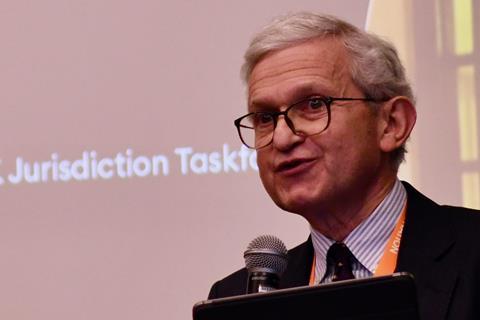Data protection regulation could stifle the development of artificial intelligence in Europe, the master of the rolls has warned. In a forthright speech to the Irish Law Society last week, Sir Geoffrey Vos highlighted two areas of potential threat:
- Individuals’ rights under Europe’s General Data Protection Regulation not to be subject to automated decision-making, and
- The existence of residual rights in data used to train AI tools.
Vos was speaking as the UK government ponders regulation of artificial intelligence following the coming into force of the EU’s AI Act and the Council of Europe’s Treaty on AI and human rights, democracy and the rule of law.
Pointedly, the master of the rolls opened his speech by quoting Italian former prime minister Mario Draghi’s conclusion last month that the EU’s regulatory stance ‘hampers innovation’.

Vos continued that, while the two regulatory problems he had identified may appear ‘nerdy and over-technical’, they 'very much concern industry and business, the tech community and lawyers to the tech community'.
For example, the provision under Article 22 of the GDPR that people 'shall have the right not to be subject' to automated decision-making ‘has very wide potential effect’, he said. Case law has so far failed to resolve whether the article prohibits such decision-making or simply provides another right for the data subject to enforce in the event of abuses. He predicted a future in which 'local authorities, Amazon and government pension autorities ask customers to consent to automated decision-making every time they contact you, just as we are asked 20 times a day to consent to cookies. We shall see.'
The training data problem, meanwhile, arises from software developers’ use of large language model AI products to write code: do the owners of the data on which the models were trained retain any residual rights in products so developed? 'This problem is likely, I guess, to be the subject of significant litigation in the future.'
Both these problems he said, are 'created in part at least by regulation getting ahead of private law'. In this crafting regulation, he concluded 'we all need to be careful not to impede the development and adoption of new technologies, whilst also being astute to ensure that people’s basic human rights are not infringed.'
This article is now closed for comment.



























6 Readers' comments